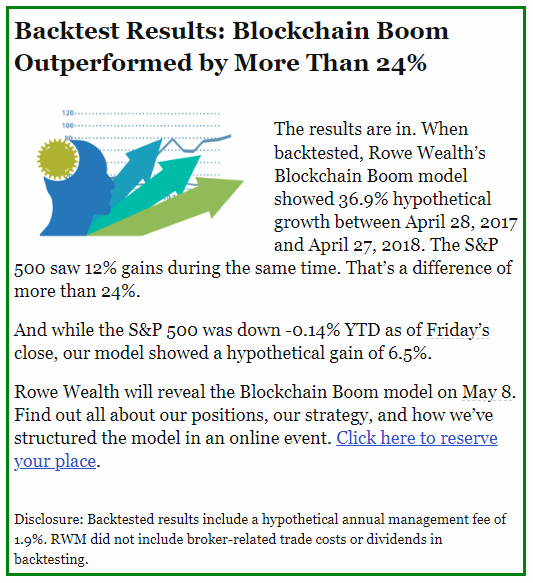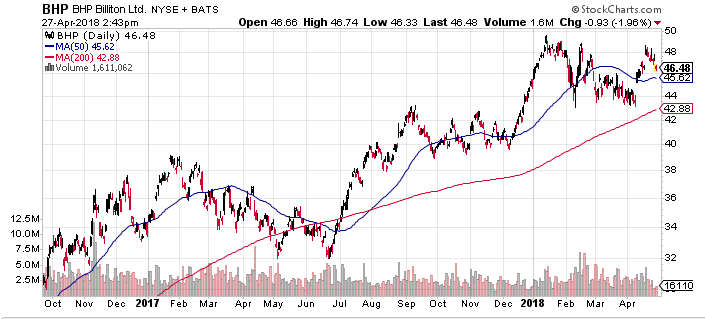Related Blogs
May 1, 2018 | Michael Reilly
A lot of the blockchain news today is focused on the future of transaction processing. Lots of companies are concentrated on this and claiming their model will solve problems with transaction fees or transaction times…
But, contrary to popular belief, this isn’t where the hot action is right now and it’s not necessarily what “Blockchain Boom”, our newest investment model, is focusing on.
Blockchain tech was originally intended for use in financial transactions, but it didn’t take innovators long to figure out that it’s a game changer in the logistics industry as well.
In fact, the potential applications are so wide-reaching, across so many areas of the supply chain, that logistics will most likely be THE area where we see the first big profits.
 After all, the logistics sector may very well employ more people than any other industry, and it hasn’t necessarily scaled well enough to deal with its explosive growth.
After all, the logistics sector may very well employ more people than any other industry, and it hasn’t necessarily scaled well enough to deal with its explosive growth.
In many ways, logistics needs blockchain more than any other industry, to prevent fraud and to provide transparency to both consumers and auditors. Employing blockchain tech in logistics could initially save around $50 billion per year, and if implemented on a mass market level could save up to $500 billion annually.
What’s the Big Deal?
One of the biggest problems with logistics as an industry is it’s especially prone to corruption, theft, and a lack of accountability.
The FBI estimates an annual loss of about $30 billion every year from theft, with the average value of a “take” at around $190,000. When theft occurs, there’s often no record of where the cargo was when it was taken, and who was technically in possession of the goods at the time. Tracking shipments across multiple carriers is almost impossible, and there’s often no way to help identify who made a mistake after a shipment is damaged. Blockchain also eliminates the need for third party brokers, some of whom charge premiums of up to 50%.
It’s surprising, but this is just the way things are done at the moment. Blockchain fixes all these problems in one swoop, and has the potential to incentivize the safe delivery of freight at the same time.
How Does it Work?
Blockchain has the best security available at the moment. In fact, that’s one of the reasons bitcoin was so attractive to initial investors. Once data is entered in the blockchain, it can’t be altered without noticeable effect. If someone were to attempt to fraudulently alter data in a blockchain the change and the perpetrator would be immediately exposed.
When it comes to logistics, there’s a lot of room for error and manipulation. Goods pass through many carriers, and each one might use a different system for tracking. There’s also no incentive to accurately record data, since sketchy books make it harder to pinpoint the source of the problem when one particular carrier makes a mistake.
With blockchain, all carriers will enter data into the same system, allowing them to actually communicate and accurately track shipments. One of the big ideas behind logistics blockchains is that they’ll track products so accurately suppliers can constantly monitor the behavior of their operators, and reward them for choosing efficient routes that save both parties money and time. This solves the problems of accountability and incentivized responsibility simultaneously.
Transparency is Key
Blockchain also provides transparent data to consumers. This can be a big deal, especially in countries where food contamination has been an issue.
In 2008, China’s dairy industry was crippled after 54,000 infants were hospitalized due to milk and baby formula being contaminated with a chemical called melanine. This was compounded by the fact that the country has a big problem with food counterfeiting. Consumers in China often have no idea where their food is coming from, or if its labels and packaging are legitimate.
With properly implemented logistic blockchains, consumers would be able to quite literally track food from “farm to table”. If food contamination occurs, consumers could still make purchases with confidence, knowing they came from a different farm or area of the country. In the case of beef, you could even identify the breed of cow, the date it was slaughtered, and view its bacteria testing profile.
When we look at blockchain companies for potential inclusion in our model, we always consider their potential impact on big industries.
Logistics blockchains are already well into development and will likely be the first to become implemented on a bigger scale. Mining company BHP Billiton has already started to use blockchain to share data between its production line and shipping companies, and claims the system has helped efficiency. Here’s a look at their chart from the date they announced their blockchain plans to today:

We’ll be talking about blockchain in much greater detail during our webinar on Tuesday, May 8th. We’ve identified several companies with high relative strength that are also showing confirmed upward trends in price. These aren’t companies you’d necessarily hear about in the news either…at least, not yet. You’re already registered, so make sure you attend. You don’t want to miss out on investing in the blockchain revolution.
If you want more info as soon as possible, please don’t hesitate to schedule an appointment with us. We have our best experts ready and waiting to guide you through smart investments you could be making right now. Click here to book your slot today.
Tags

Get Our FREE Guide
How to Find the Best Advisor for You
Learn how to choose an advisor that has your best interests in mind. You'll also be subscribed to ADAPT, Avalon’s free newsletter with updates on our strongest performing investment models and market insights from a responsible money management perspective.

